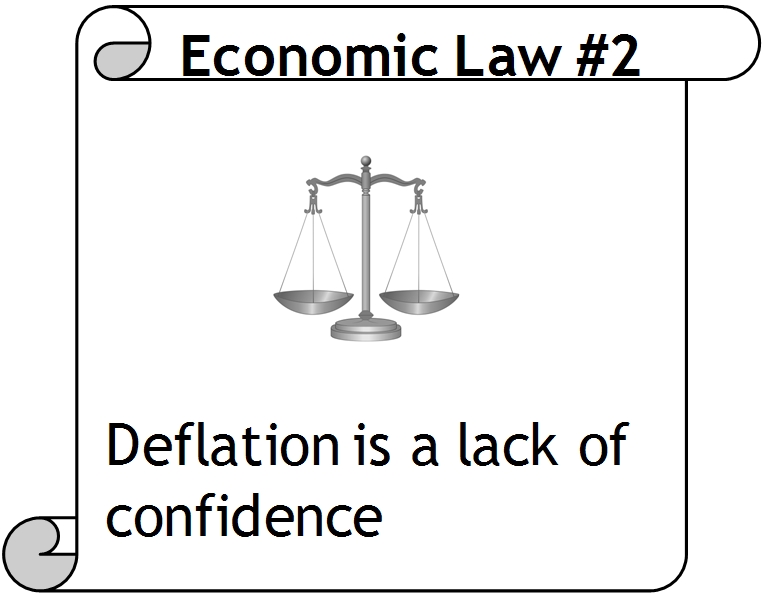Economic Laws
I postulated four economic laws that are fundamental to understanding markets. These simple but profound laws provide clarity to understand why or how certain events occur. These laws are referenced in Escaping Oz to fortify their understanding.

Economic Law #1 - Credit = Confidence
Without confidence there is no credit. A credit transaction requires a lender having the confidence of repayment, with interest, from the debtor. Manifestations of extremes of confidence are evident with excessive credit creation. Excessive credit creation leads to inflation, which many identify as a rise in prices.

Economic Law #2 - Deflation is a lack of confidence
Conversely, deflation implies an absence of confidence, which means less credit. Less credit results from fewer loan originations, loan defaults, or loan payoff. Any of these three conditions reduces the amount of outstanding credit. The reduction of credit is fatal to a credit-based economy.

Economic Law #3 - Inflation precedes deflation
Deflation cannot occur without a preceding inflation. The greater the size of the inflation, the greater the ensuing deflation. Inflation can occur in specific parts of an economy and leave others less affected.

Economic Law #4 - Markets allow people to satisfy themselves by satisfying others
Economies are expressions of what people do. Participants in an economy act on their own behalf (what is best for them) in a manner that meets the satisfaction of others acting on their own behalf. The collective action of all of these participants is the Market. Therefore, the Market is a collection of many people acting on their own behalf for the benefit of others.
Disclosure: None.



